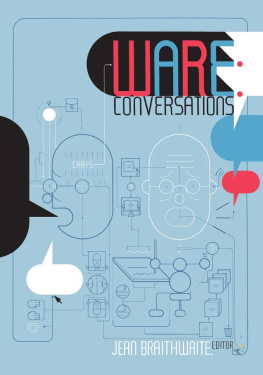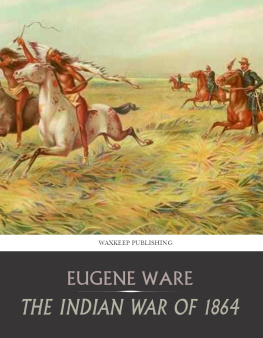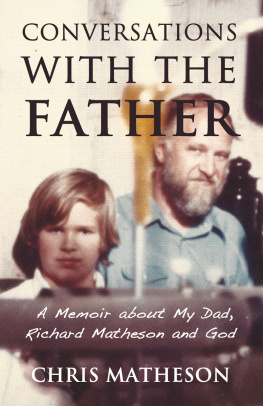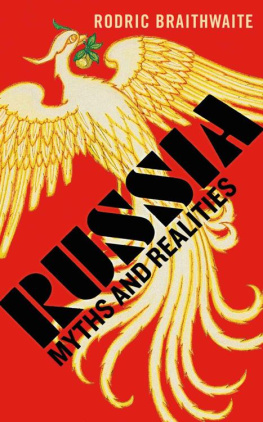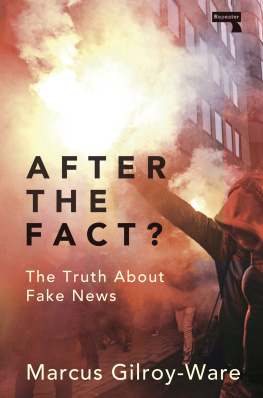Braithwaite Jean - Chris Ware: Conversations
Here you can read online Braithwaite Jean - Chris Ware: Conversations full text of the book (entire story) in english for free. Download pdf and epub, get meaning, cover and reviews about this ebook. City: United States, year: 2017;2016, publisher: University Press of Mississippi, genre: Art. Description of the work, (preface) as well as reviews are available. Best literature library LitArk.com created for fans of good reading and offers a wide selection of genres:
Romance novel
Science fiction
Adventure
Detective
Science
History
Home and family
Prose
Art
Politics
Computer
Non-fiction
Religion
Business
Children
Humor
Choose a favorite category and find really read worthwhile books. Enjoy immersion in the world of imagination, feel the emotions of the characters or learn something new for yourself, make an fascinating discovery.
- Book:Chris Ware: Conversations
- Author:
- Publisher:University Press of Mississippi
- Genre:
- Year:2017;2016
- City:United States
- Rating:5 / 5
- Favourites:Add to favourites
- Your mark:
- 100
- 1
- 2
- 3
- 4
- 5
Chris Ware: Conversations: summary, description and annotation
We offer to read an annotation, description, summary or preface (depends on what the author of the book "Chris Ware: Conversations" wrote himself). If you haven't found the necessary information about the book — write in the comments, we will try to find it.
Chris Ware: Conversations — read online for free the complete book (whole text) full work
Below is the text of the book, divided by pages. System saving the place of the last page read, allows you to conveniently read the book "Chris Ware: Conversations" online for free, without having to search again every time where you left off. Put a bookmark, and you can go to the page where you finished reading at any time.
Font size:
Interval:
Bookmark:
CHRIS WARE: CONVERSATIONS
Conversations with Comic Artists
M. Thomas Inge, General Editor
Chris Ware
CONVERSATIONS
Edited by Jean Braithwaite
University Press of Mississippi Jackson
www.upress.state.ms.us
The University Press of Mississippi is a member of the Association of American University Presses.
Copyright 2017 by University Press of Mississippi
Images Chris Ware. Used by permission.
All rights reserved
Manufactured in the United States of America
First printing 2017
Library of Congress Cataloging-in-Publication Data
Names: Ware, Chris, 1967 interviewee. | Braithwaite, Jean, 1962 editor.
Title: Chris Ware : conversations / edited by Jean Braithwaite.
Description: Jackson : University Press of Mississippi, 2017. | Series: Conversations with comic artists | Includes index.
Identifiers: LCCN 2016043627 (print) | LCCN 2016044016 (ebook) | ISBN 9781496809292 (hardback) | ISBN 9781496809308 (paper) | ISBN 9781496809315 (epub single) | ISBN 9781496809322 (epub institutional) | ISBN 9781496809339 (pdf single) | ISBN 9781496809346 (pdf institutional)
Subjects: LCSH: Ware, Chris, 1967Interviews. | CartoonistsUnited StatesInterviews. | BISAC: LITERARY CRITICISM / Comics & Graphic Novels. | SOCIAL SCIENCE / Popular Culture.
Classification: LCC PN6727.W285 Z46 2017 (print) | LCC PN6727.W285 (ebook) | DDC 741.5/973dc23
LC record available at https://lccn.loc.gov/2016043627
British Library Cataloging-in-Publication Data available
CONTENTS
Dan Kelly / 1993
Dylan Williams / 1994
Peter Huestis / 1995
Andrea Juno / 1996
Noel Tolentino / 1998
Dan Raeburn / 1998
Charles Brownstein / 2000
Ira Glass / 2001
Keith Phipps / 2001
Center for Interdisciplinary Studies of Writing / 2002
Rebecca Bengal / 2006
Matthias Wivel / 2010
Debbie Millman / 2012
Alec Marsh / 2013
Claire Marie Healy / 2014
Jean Braithwaite / 2014
Jean Braithwaite / 2015
Jean Braithwaite / 2015
INTRODUCTION
If you are contemplating buying this book, you know who Chris Ware is. Sometimes when explaining the project to non-comics-oriented family and acquaintances I have called Ware the second most famous cartoonist in the country, on the grounds that if a reasonably literate American can only squeeze out of her memory the name of one artistically significant cartoonist, that person is most probably Art Spiegelman.
I dont actually place Ware second to Spiegelman, though, or to anyone, really. On the one hand, I firmly believe that some art is more worthy of attention than other art and that in any medium and genre there are relatively few truly outstanding practitioners. On the other hand, linear rankings of artistic excellence seem simplistic and wrong-headed. Even the somewhat less ineffable quality of fame is tricky to assess: how many accumulated Eisners and Harveys should be set against a Pulitzer?
In a previous book in this series, Seth says to interviewer Eric Hoffman that Ware has reconstructed the grammar of comics and the history of comics now naturally divides into a before Chris and an after Chris period (201). In passing, Seth specifically compares Wares impact to that of Crumb and Spiegelman,1 powerful influences as they were. Dave Eggers also compares Ware and Spiegelman: Ware is the most versatile and innovative artist the medium has known, and though its unlikely that anyone soon will tell a story as powerfully as did Spiegelman in Maus, in terms of sheer aesthetic virtuosity Wares book [Jimmy Corrigan] is arguably the greatest achievement of the form, ever.
Ware deserves a place in the Conversations with Comic Artists series if anyone does. Still, why have a book of interviews with any artist? Why not just focus on the art itself? In a recent email exchange, Ware ambivalently discussed with me his crowded schedule, lamenting that in recent decades public speaking has become such an expected part of the writers life, as if the work itself wasnt enough. He claimed, hyperbolically, that he is always an appalling disappointment to those who fondly imagined beforehand that his presence in person, his conversation, would somehow offer something that isnt [offered] just by making the work itself. Wares main claim is readily falsified: audio and video recordings of him speaking before obviously delighted audiences are all over the Internet.
On the other hand, isnt there something beautifully high-minded about insisting that the work itself is the most compelling thing about the artist and should matter more than he does? What is it we want from interviews, and is it altogether wholesome? Is it a little low and gossipy of us to want something more or different than just the oeuvre? Maybe there are stunted fanboy attitudes, illegitimate reasons for pestering the artist to let us in closer. But surely there are at least some legitimate ones? We care how art comes to be created. We care about influences flowing into and from a body of work. Wares views as an analyst of comicshis own or otherwisedeserve attention. Despite his own protestations to the contrary, Ware is erudite and articulate, not just about comics but literature, music, architecture, and other subjects, and what the arts say about our larger history and culture. His ars-poetica moments enhance the pleasure of contemplating his work.
Many constituencies have lofty reasons for wanting to get a little vicarious intimacy, a little face time with Ware: aspiring artists who admire his work and seek inspiration or guidance; scholars interested in what he says about his own intentions, techniques, false starts, and second thoughts; and readers who love and have been uplifted by the work. Of course we want to spend time with someone whose art proclaims his depth and compassion. We want access to the authentic personality, minus any distortion or caricature that might build up around someone who becomes important to a public beyond his immediate circleelusive though this goal may ultimately be.
I personally have been aware of Chris Ware only since 2000, when the opening scenes of Jimmy Corrigan: The Smartest Kid on Earth were printed in the New Yorker. It was obviously brilliant. It was a clear masterpiece by someone very intelligent but perhaps a little on the cool side. I kept half an eye on Ware, noting his New Yorker Thanksgiving covers and the Best American Comics 2007 under his design and editorship.
In spring 2010, I managed to wangle a special section of Intro to Lit in which I taught comics, and I used Best American Comics 2009 as one of the texts. The excerpt from Wares Lint was intriguing enough that I sent for it by interlibraray loan. Lint was an astonishing achievement of literary psychological realism. Ware chose as his protagonist an average jerk, a boy and then a man who harms people around him, not fully realizing it, feeling victimized and underappreciated himself. Yet its a sympathetic portrait. There is no condescension here, hardly even any ironic distance. We fully inhabit Jordan/Jason Lint from birth to death and feel his suffering vicariously just as much as if he were a more conventional tragic hero. At the same time that we know him from the inside, we also, by some alchemyperhaps just our spatial advantagehave a Gods-eye view of Lint.
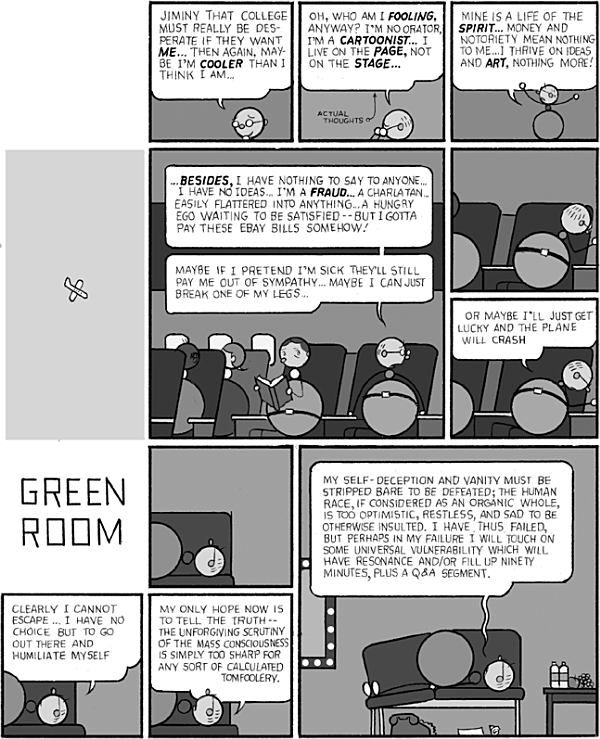
Green Room. Detail from catalog cover design for the Steven Barclay Agency, 2005.
Narrative point of view in comics has not yet received much academic attention. Like movies and stage plays, comics neednt, and usually dont, make much use of an overt narrator. Certain limitations or powers are implied by the cumulative perspectives of each panel, though. Our information derives from seeing Lint from the outside and also eavesdropping on his thoughts. We have no direct access to any other characters mind. We never witness any scene where he is not also present, yet we understand every aspect of his life better than he does himself. The narrative thus has the largeness of scope made possible by an old-fashioned omniscient narrator and the ambiguity and subtlety of a close third-person perspective through an unreliable reflector. Neither effect is new in literary history, but for both to be available simultaneously is the emotional equivalent of a mind-bending optical illusion.
Next pageFont size:
Interval:
Bookmark:
Similar books «Chris Ware: Conversations»
Look at similar books to Chris Ware: Conversations. We have selected literature similar in name and meaning in the hope of providing readers with more options to find new, interesting, not yet read works.
Discussion, reviews of the book Chris Ware: Conversations and just readers' own opinions. Leave your comments, write what you think about the work, its meaning or the main characters. Specify what exactly you liked and what you didn't like, and why you think so.

